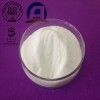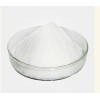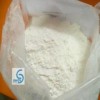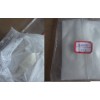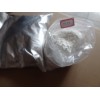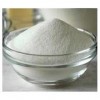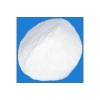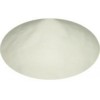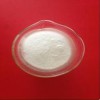Quick Details:
· Product name: Dexamethasone
· Alias: 16-alpha-methyl-9-alpha-fluoro-1,4-pregnadiene-11-beta,17-alpha,21-triol-3,2
· CAS number: 50-02-2
· EINECS: 200-230-3
· Melting point: 262-264°C
· Appearance: White crystalline powder
· Usage: widely used for the treatment of allergic and respiratory disorders.
Product Description:
|
Product name |
Dexamethasone |
|
Other name |
16-alpha-methyl-9-alpha-fluoro-1,4-pregnadiene-11-beta,17-alpha,21-triol-3,2 |
|
CAS register number |
50-02-2 |
|
EINECS |
200-003-9 |
|
Molecular formula |
C22H29FO5 |
|
Molecular weight |
392.46 |
|
Molecular structure |
|
|
Melting point |
262-264°C |
|
Assay |
98% |
Applications:
Dexamethasone, a corticosteroid, is similar to a natural hormone produced by your adrenal glands. It often is used to replac this chemical when your body does not make enough of it. It relieves inflammation (swelling, heat, redness, and pain) and is used to treat certain forms of arthritis; skin, blood, kidney, eye, thyroid, and intestinal disorders (e.g., colitis); severe allergies; and asthma. Dexamethasone is also used to treat certain types of cancer.
Dexamethasone comes as a tablet and a solution to take by mouth. Your doctor will prescribe a dosing schedule that is best for you. Follow the directions on your prescription label carefully, and ask your doctor or pharmacist to explain any part you do not understand. Take dexamethasone exactly as directed. Do not take more or less of it or take it more often than prescribed by your doctor.
Do not stop taking dexamethasone without talking to your doctor. Stopping the drug abruptly can cause loss of appetite, upset stomach, vomiting, drowsiness, confusion, headache, fever, joint and muscle pain, peeling skin, and weight loss. If you take large doses for a long time, your doctor probably will decrease your dose gradually to allow your body to adjust before stopping the drug completely. Watch for these side effects if you are gradually decreasing your dose and after you stop taking the tablets or oral liquid, even if you switch to an inhalation corticosteroid medication. If these problems occur, call your doctor immediately. You may need to increase your dose of tablets or liquid temporarily or start taking them again.


